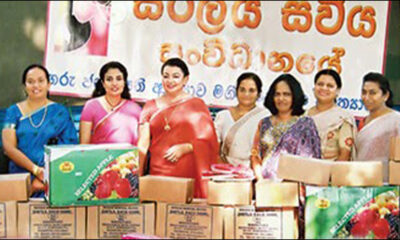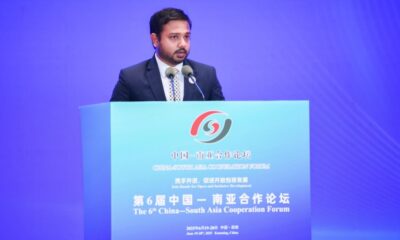News
Not a single rupee of tax money will be misused or lost – President
Published
3 weeks agoon
By
editor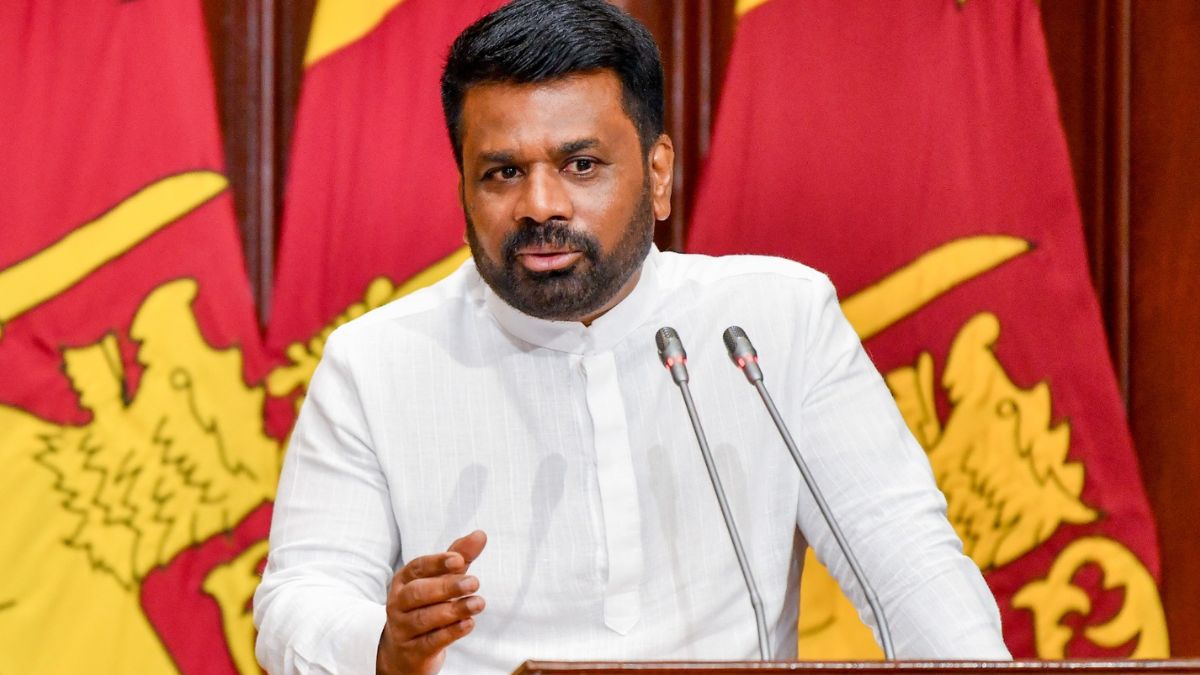
President Anura Kumara Disanayake emphasized that he gives the nation his assurance that not a single rupee of the tax money paid by the people will be misused or lost to corruption.
He further stated that if any politician or public official is found engaging in such misconduct, strict action will be taken regardless of their position and the maximum possible punishment will be enforced. The President affirmed his commitment to ensuring justice for the taxpayers by dismantling the corrupt mechanisms that have long operated against the public interest.
President Disanayake made these remarks this morning (02) while addressing the inaugural ceremony of the national programme titled “Tax Power’ to enhancing Tax Compliance and Broadening the Tax Base held at the Presidential Secretariat.
The launch of “Badu Shakthi – National Tax Week” also took place in parallel under the theme “Your Tax – Your Future”.
The President emphasized that the current government inherited a nation in a state of collapse and that a well-structured tax system is essential to revive and rebuild the country.
He further noted that Sri Lanka is currently under economic probation and invited all citizens to join hands in building a self-sufficient national economy. He underscored that the extended credit facility agreement with the International Monetary Fund (IMF) should mark the final such programme for the country.
The “Tax Shakthi” National Tax Week commenced with the objective of transforming negative public perceptions surrounding tax compliance into a more constructive outlook, while fostering a new tax culture grounded in transparency, accountability, and civic responsibility. From June 2 to June 7, a series of awareness programmes will be carried out to educate the public on the importance of tax contributions, how tax revenue supports national development and the tangible benefits delivered to citizens through effective public financing.
As part of the initiative, the Inland Revenue Department officially launched its online platform for the submission of individual income tax returns for the 2024 assessment year. Marking a significant gesture of leadership and commitment to fiscal responsibility, President Anura Kumara Disanayake submitted his personal income tax return via the online portal, becoming the first to do so for the 2024/25 assessment year.
Additionally, the implementation of the ASYHUB system at the Sri Lanka Customs Department was carried out as part of this initiative. Developed with the support of the German government and the UNCTAD organization, this modernized system enables importers to complete their customs procedures before the goods arrive in the country. Through this system and the integrated risk management software used by Customs, risk-free shipments are directly cleared at the port and conveniently transported to the respective importers’ warehouses.
Excise Department officers were introduced to a new mobile application designed to identify legally manufactured alcoholic beverages through a secure labelling system.
Secretary to the President, Dr. Nandika Sanath Kumanayake, also addressed the event, stating that the primary aim of Tax Week is to enhance tax compliance among the business community and the general public, thereby strengthening the national tax base.
Secretary to the Ministry of Finance, Mahinda Siriwardana, noted that paying taxes is a goodwill investment made by citizens for the betterment of the country.
Convenor of the “Clean Sri Lanka” initiative, Senior Additional Secretary to the President Russell Aponsu emphasized that tax compliance plays a crucial role in building a well-disciplined nation guided by ethical and sustainable development principles.
The full speech delivered by President Anura Kumara Disanayake at the event:
There is a generally negative perception of taxation in our country. Public discourse often reflects concerns about tax wastage, tax evasion and the overall complexity of the tax system. Moreover, institutions have emerged with the sole purpose of advising individuals and businesses on how to evade taxes. These attitudes have developed largely due to the weaknesses in our tax administration system and the public’s awareness of past misuse and mismanagement of tax revenues. Therefore, it is essential that we initiate a broader public discussion on tax compliance, the mechanisms through which taxes are collected, and the prevailing public attitudes toward taxation.
When we examine some of the available data, the picture is far from encouraging. Only 43% of those registered as companies have submitted their tax returns. For the 2023–2024 period, only 23% of individuals liable for income tax have filed returns. Among partnerships, the compliance rate is 46%. Meanwhile, just 18% of those liable for PAYE tax have submitted their returns. None of these figures exceed 50%, clearly indicating widespread tax non-compliance and deliberate efforts to evade taxes.
The root cause of this situation lies in the public’s criticism particularly from taxpayers of how past political administrations have misused tax revenues. Therefore, our first responsibility is to assure the people that their tax money will be used appropriately and exclusively for essential needs. That assurance is now entrusted to me and to the current political leadership. As President, I give you my personal guarantee that not a single rupee of your tax money will be wasted or misappropriated by the political authority.
I, as President, have been granted certain privileges funded by public tax money through laws, gazette notifications and Cabinet decisions. However, we have already relinquished many of those privileges. I have made every possible effort to reduce expenditures under the Presidential budget allocation, in order to safeguard every rupee contributed by the people. The Cabinet and Members of Parliament are following the same principle. We are operating under a regime of discipline and accountability. And that is where we begin to set the first example.
We must also build an efficient public service. We are making a concerted effort to transform the relationship between the state apparatus and the citizen into a fast, efficient and fully digital system. At the same time, corruption that has spread throughout the public sector must be eradicated. You are aware that when an ordinary citizen applies for a passport, they must personally visit the Department of Immigration and Emigration, submit their photograph and provide fingerprints. Yet, underworld figures have been issued multiple passports with different sets of fingerprints and several types of photographs. Institutions tasked with upholding our legal framework have themselves contributed to its breakdown.
Similarly, there was a case where a locker belonging to an officer of the Department of Motor Traffic contained a sum of money that could not have been legally earned even over three years. There are serious allegations surrounding the Customs Department. The Excise Department is also affected by similar issues. As a result, while our country may appear peaceful on the surface, a hidden shadow system continues to operate beneath. This underground network is run by organized smuggling rings. Recently, during the opening of a new Customs warehouse system, illegal imports by some well-known branded companies were uncovered clearly pointing to the involvement of powerful players in this black economy. This shadow system has long been protected by political authorities. It also includes certain state officials, illegally armed individuals, and even some members of the media.
Therefore, we are confronting a highly organized shadow system. I assure the people of this country that this shadow system will be dismantled. We are building a nation where everyone is subject to the rule of law. What use is amassing great wealth if, at the age of 61, you end up spending 20 years behind bars? Can anyone justify stealing public funds after receiving their education through public money and drawing a salary funded by taxpayers? All such actions will be punished. This issue regarding public funds is not merely a matter of paying or collecting taxes. It is a deeper, networked problem. Pointing fingers at individual institutions will not solve it, because it is an interconnected system. Therefore, as a state apparatus, we must be fully prepared to deal with it. Anyone unwilling to take on this responsibility is free to step aside. Unless this shadow system is broken, the country will not be able to move even an inch forward. That is why we are committed to dismantling this corrupt network.
Entrepreneurs are conducting their businesses lawfully and paying fair taxes to the government. It is the responsibility of the state to protect that system. Likewise, those who work hard to earn an honest living and pay a portion of it to the government in taxes deserve the assurance that their contributions are safeguarded. That is our responsibility. Therefore, I invite every taxpayer to continue fulfilling your duty. I give you my assurance that every rupee you pay will be protected. And if even a single rupee is misappropriated, I will ensure the full force of the law is brought to bear against it.
In this process, neither power nor social background will be taken into account. Only by cleansing this entire shadow system can we realistically achieve our tax revenue targets. Therefore, our key objective during Tax Week is to send this message to society. To that end, a broad and inclusive social dialogue must be initiated.
When we look closely at the lives of ordinary people, we see that we have failed to create an economy that adequately meets their basic needs. One of the foremost concerns raised by many industrialists and businesspeople is the issue of taxes. Consequently, the most frequent discussion revolves around the perception that taxes are an obstacle to economic activity. Taxes are not a hindrance to economic movement. I am ready to assure every entrepreneur and industrialist that if your industry lacks reliable electricity, we will provide it. If you do not have suitable land to carry on your business, we will acquire and provide it. If you lack access to water facilities, we will supply them. If the roads are inadequate, we will build proper roads. However, you must pay your taxes. No one should request tax concessions in the name of developing their industry or business. Everything else infrastructure, legal frameworks and efficiency improvements we will arrange and provide. But you must pay your fair share of taxes.
We are systematically undertaking the reconstruction of a collapsed economy. We face a significant challenge though I am reluctant to emphasize this, it must be said. What we have inherited is a stalled country. Typically, during a change of government, the country continues to move forward despite political transitions. Many have gained from this momentum. However, what we encountered was a country at a complete standstill. Investments, projects and foreign loans everything had come to a halt. Now, what has been entrusted to us? How do we revive a country that has been stopped on all these fronts? That is our primary challenge. This is why we are striving to revive the projects that were halted, particularly through foreign investments. We believe that within the next two to three months, a substantial number of these stalled projects will be able to restart.
Therefore, what we have is a country that needs to be revived. A country that is running can be held and directed, but what we have is a country that needs to be awakened. In that process, we must first understand the underlying causes that led our country to this collapse. Even in the midst of this crisis, as political leaders, as public officials, and as members of the general public, if we fail to learn from these failures, then we fail as human beings. Some of the root causes of this collapse have even been pointed out by the Supreme Court.
Recently, when punishments were handed down to those involved in corruption and fraud, the judges also highlighted the root causes of this collapse. Through our own life experiences, we have identified the factors that led to this breakdown. Therefore, the responsibility entrusted to us is to thoroughly understand these root causes and prevent their recurrence.
One of the main reasons for this collapse was our failure to properly reform the tax system and collect a fair amount of tax revenue. This crisis was of our own making. If I recall correctly, in around 1996, tax revenue accounted for about 23% of the national income, but it has since fallen to just 7.3%. This decline was a significant factor that contributed to the deepening economic crisis. Hence, it is essential to efficiently collect taxes. This crisis arose precisely because we failed to do so. Over different periods, tax reforms were carried out to satisfy various political agendas rather than economic principles. This politically driven approach to tax reform created a major problem. I assure you that we do not make any economic decisions based on political principles. All our economic decisions are made strictly on economic fundamentals. Politically motivated economic decisions were one of the reasons the country as a whole fell into collapse.
Because we were unable to overcome this crisis on our own, we have become subject to external control. We are being managed from above. Our revenue targets are now set for us. This year, the national income must grow by 15.1%. Of that, 2.3% must be maintained as a primary surplus. We have to manage the economy according to expenditure limits and revenue targets agreed upon by external parties. Why? Because we were the “bad child.” Now, we have been punished and placed under guardianship. Our economy and assets are under guardianship. Are we to remain an economy always under such guardianship? Certainly not. In a discussion with Mr. Mahinda Siriwardhana, Secretary to the Ministry of Finance, the consensus was reached that this should be regarded as the final stage of entering the International Monetary Fund’s extended loan programme. We must embark on an economic journey based on our own criteria and targets.
However, at some point, our economy must set economic goals aligned with the public’s aspirations and social expectations. Yet, currently, we are managing an economy partly under guardianship. Therefore, our firm determination is to bring this to an end this phase of the IMF extended loan programme and move forward. To achieve this, our government revenue must be increased. A large portion of this revenue comes from taxes. The bulk of tax collection and administration falls on the Department of Inland Revenue, the Department of Customs and the Excise Department. Therefore, as taxpayers, tax collectors, and tax administrators, let us work together to succeed in this effort. Let us strive to transform an economy under guardianship into a sovereign economy with full independence.
Joining this effort were Minister of Labour and Deputy Minister of Economic Development Anil Jayanta Fernando, Deputy Minister of Finance and Planning Harshana Suriyapperuma, Governor of the Central Bank Dr. Nandalal Weerasinghe, along with other senior government officials, provincial governors and private sector representatives.
(President’s Media Division)
You may like
-
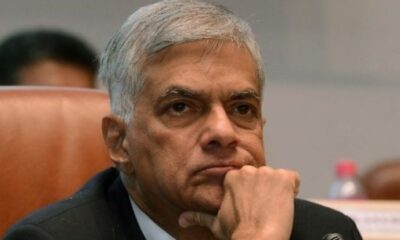

CID probing into ex-President Ranil’s overseas trips
-
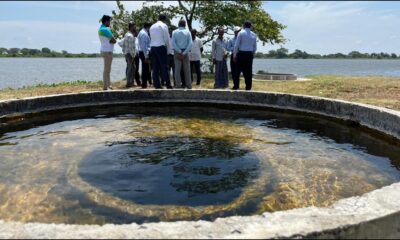

Nelumwewa hot springs to be boosted as tourist destination
-
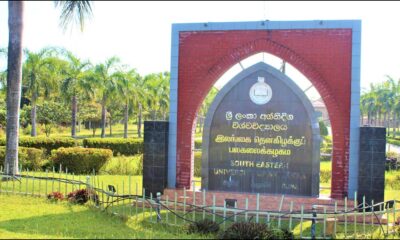

22 Oluwil university students suspended over ragging
-
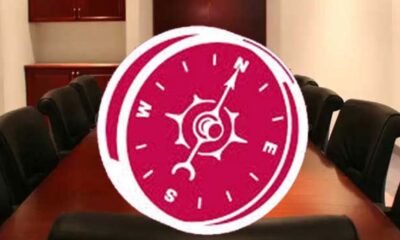

NPP secures control of 200 LG bodies
-
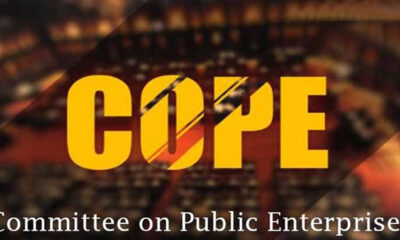

10 J’pura students unnecessarily charged for hostel damages – CoPE
-
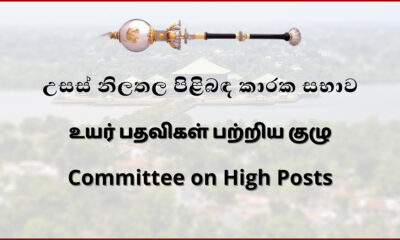

High Posts committee approves appointments of 4 chairmen
News
CID probing into ex-President Ranil’s overseas trips
Published
8 hours agoon
June 24, 2025By
editor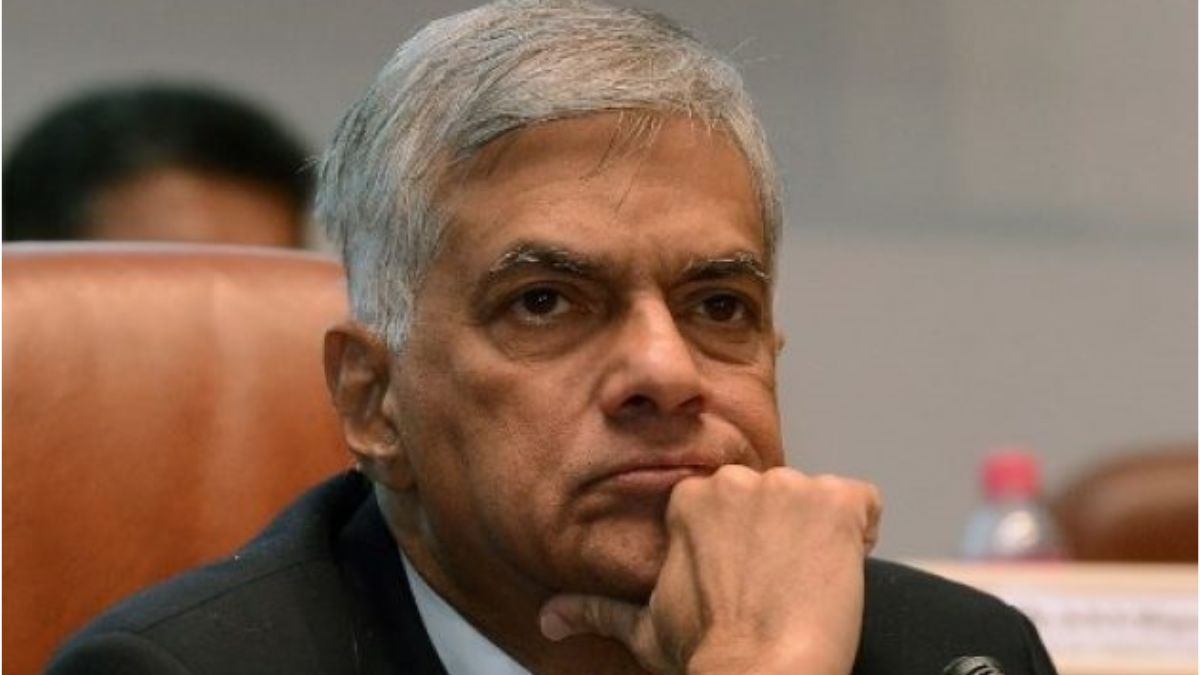
The Criminal Investigation Department (CID) informed the Colombo Fort Magistrate’s Court today (June 24) that it has launched an investigation into the overseas trips made by former President Ranil Wickremesinghe during his tenure as president.
The CID reported the facts to the court and stated that the investigation is being conducted under the Public Property Act.
News
Nelumwewa hot springs to be boosted as tourist destination
Published
8 hours agoon
June 24, 2025By
editor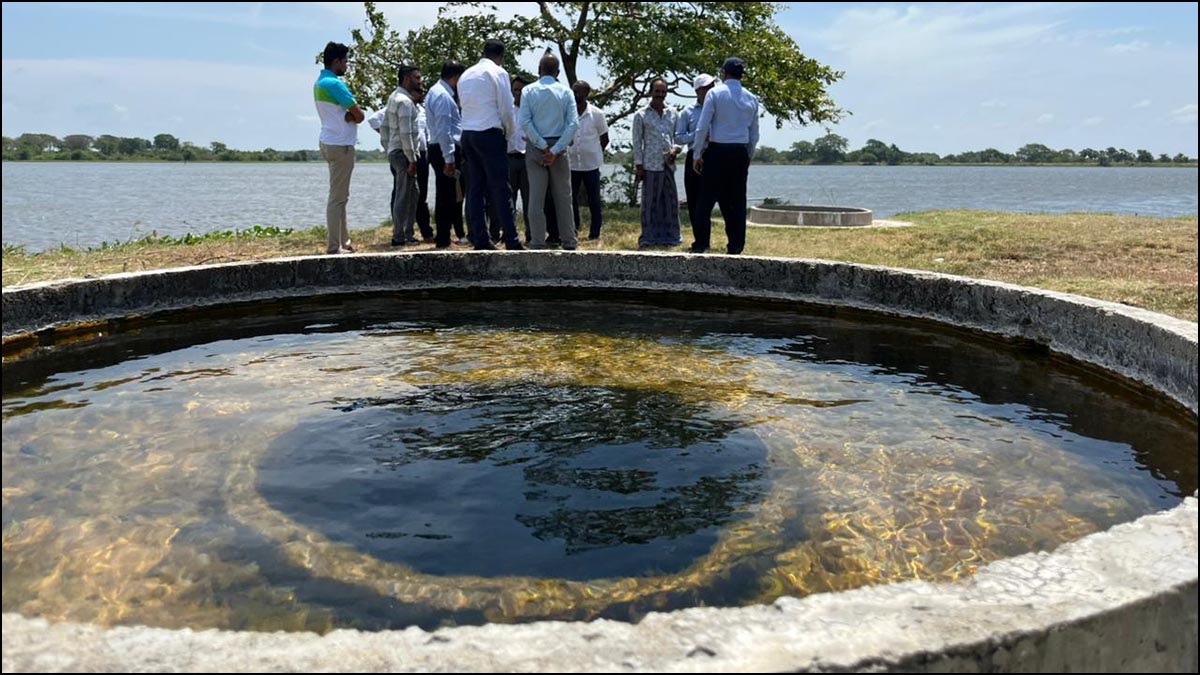
As part of the “Clean Sri Lanka” initiative, a development project has been proposed to enhance the area surrounding the Nelumwewa hot springs in Welikanda, Polonnaruwa, with the aim of promoting it as a tourist attraction.
A discussion regarding the proposed development was held this morning (June 24) at the site, followed by a field inspection.
Until now, the hot springs area has not been adequately developed, leading to a diminished interest from both local and international tourists.
During the discussion, attention was drawn to the importance of developing the Nelumwewa hot springs, the site’s tourism and scientific potential and its current condition.
Proposals currently being evaluated involve enhancing forest cover in the surrounding area, beautifying the island adjacent to the hot springs and building a bridge from the mainland to the island to facilitate better access for visitors.
Among those present were Deputy Minister of Housing T.B. Sarath, Chairman of the Welikanda Pradeshiya Sabha, D.W. Wasantha, retired hydrologist Prof. Dharma Gunawardena of the University of Peradeniya and officials from the Clean Sri Lanka Secretariat, the Mahaweli Authority, the Sri Lanka Tourism Development Authority, the Welikanda Divisional Secretariat and several other institutions.
(President’s Media Division)
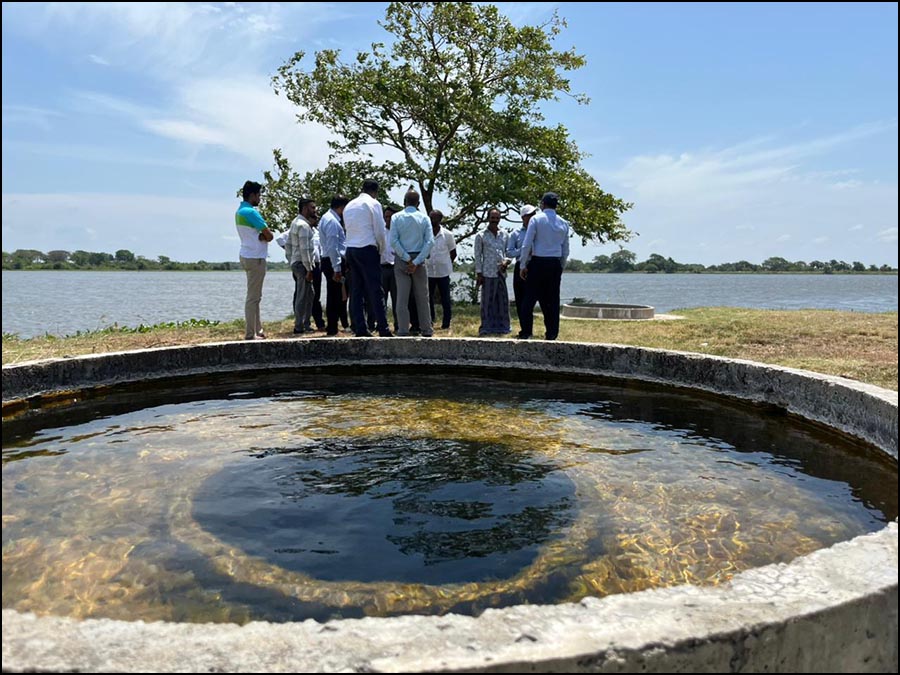
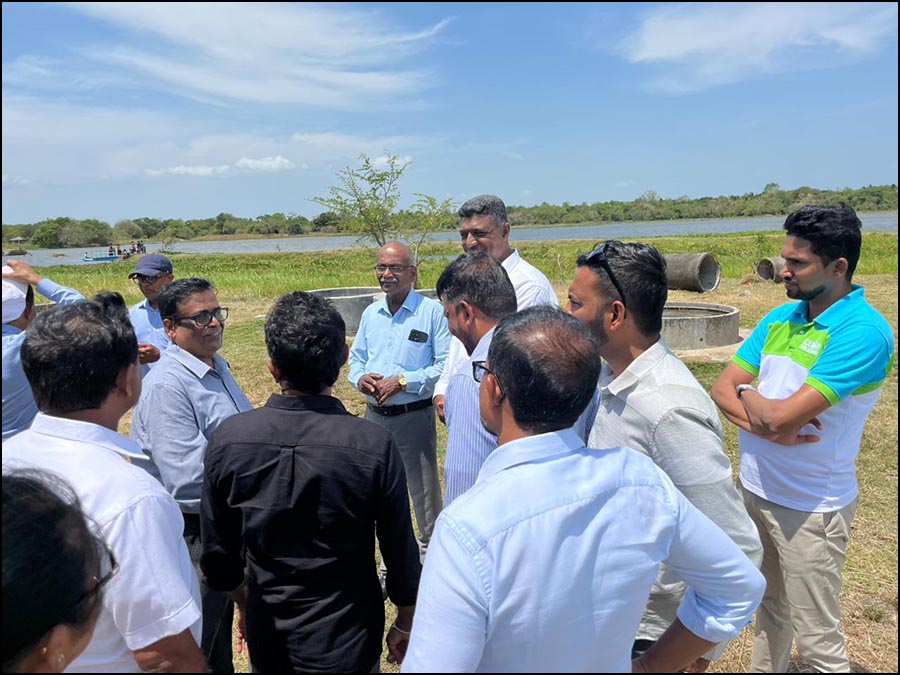
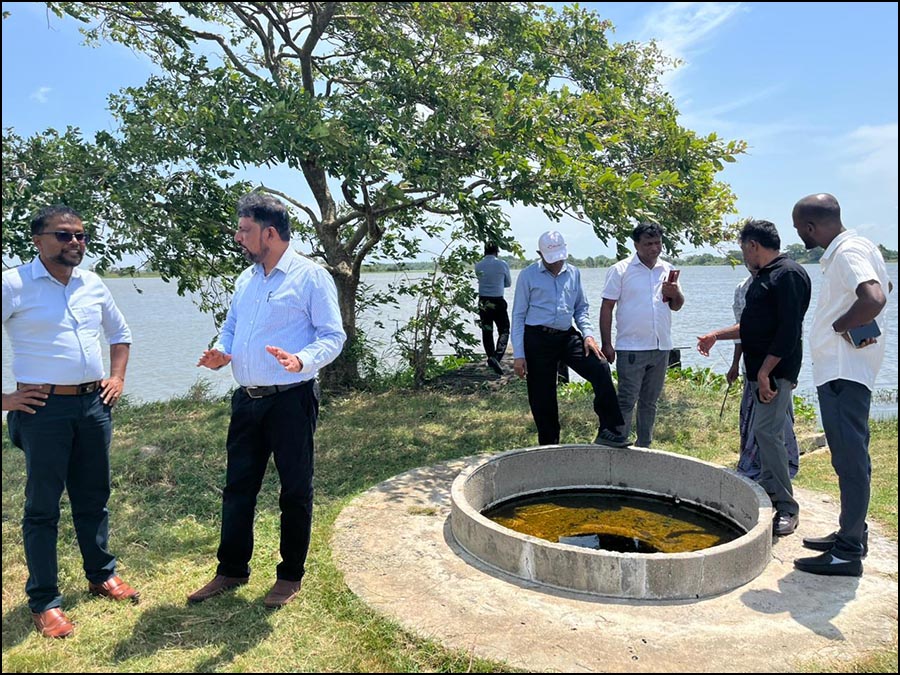
News
22 Oluwil university students suspended over ragging
Published
8 hours agoon
June 24, 2025By
editor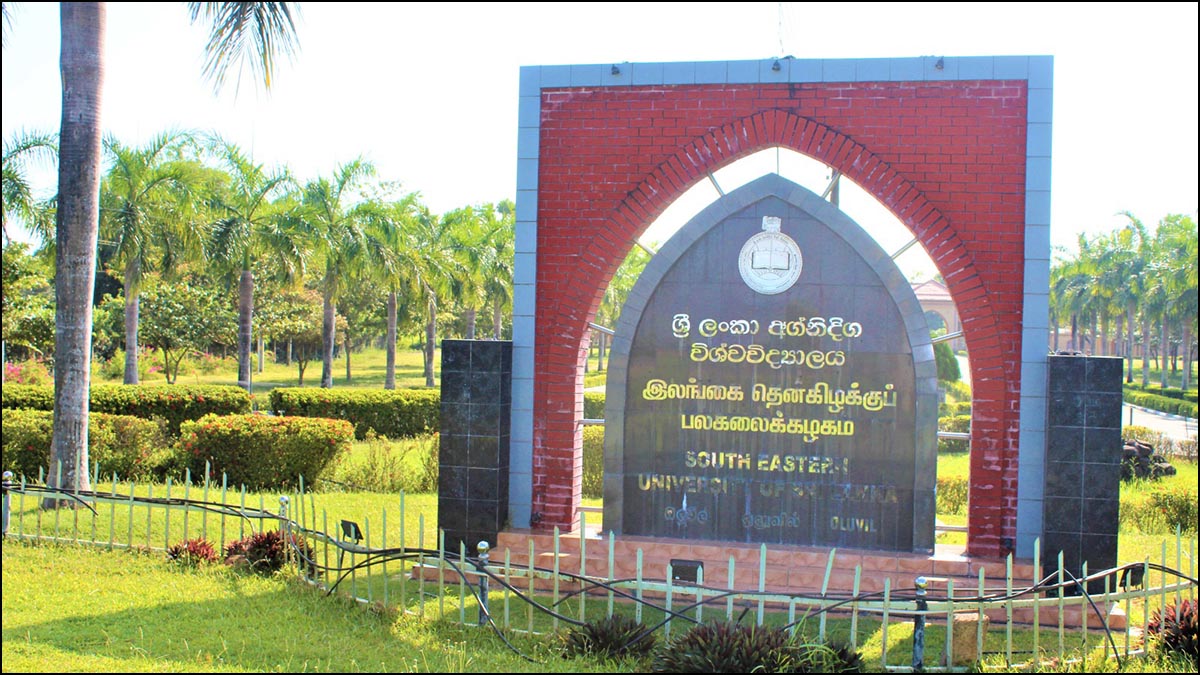
A group of 22 students from Oluwil University have been suspended for allegedly ragging first-year students, Vice Chancellor Prof. S.M. Junaideen said.
The university’s Registrar, M.I. Naufer, stated that a special committee made up of university professors has been appointed to carry out a formal investigation into the incident.
According to preliminary reports, a group of second-year students from the Engineering Faculty were involved in ragging several first-year students. University authorities said strict disciplinary action would be taken based on the findings of the investigation.
The incident has raised fresh concerns about ragging in universities, which remains a serious issue despite longstanding efforts to eliminate the practice from Sri Lanka’s higher education institutions.
(dailymirror.lk)
(This story, originally published by dailymirror.lk has not been edited by SLM staff)

CID probing into ex-President Ranil’s overseas trips

Nelumwewa hot springs to be boosted as tourist destination










